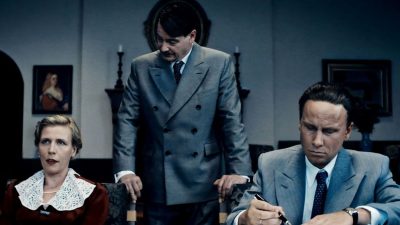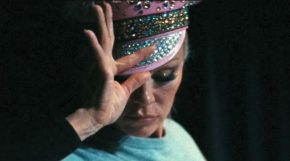As a music fan, if we inquire about Latvia, the first names to come to mind will probably be the conductor Mariss Jansons or the excellent mezzosoprano Elīna Garanča, while Wagner fans will most likely mention that the master was a music director in Riga in the past. Those more knowledgeable of ballet could add that Mikhail Baryshnikov, one of the finest ballet dancers of all time, was born in Riga and recently took up Latvian citizenship. Until recently, Riga has only been independent for short periods of time, which is why the German, Polish, Swedish and Russian influences have created such a vibrant atmosphere around the country, that today’s Latvia, which speaks one of Europe’s most unique and archaic European languages, can only profit as it searches for its own identity.
The CAFe Budapest Contemporary Arts Festival bows its head to this and to their search for their own path within Europe as Estonia, Lithuania and Latvia will be the focus of this year’s programme. If we speak of Baltic chamber music then there is no need to introduce the Lithuanian Chamber Orchestra or the Kremerata Baltica led by Gidon Kremer, and there are also the young groups, whose members grew up in the ornate styles of baroque and classical, but from the start where committed to modern music. The Sinfonietta Riga formed in 2006 with the intent of showcasing vibrant and rich Baltic contemporary music to the world. Their ideas and musical conceptualisations and endeavours have been rewarded with numerous recognitions, among them a Grammy Award, which was awarded for the performance of an Arvo Pärt work that was conducted by the Estonian Tõnu Kaljuste. In addition to this group, the other chamber formation to receive acclaim for their participation in Adam’s Lament were the Estonian Philharmonic Chamber Choir, the Tallinn Chamber Orchestra, the Latvian Radio Choir and the Vox Clamantis vocal ensemble. This recording was chosen as the recording of the month for the BBC in January 2013.

Kristaps Berg; Müpa’s courtesy
At Sinfonietta Riga’s Budapest performance, the Latvian Pēteris Vasks’s monumental Cello Concerto No. 2 strives for nothing less than to follow human life’s great mysteries from birth to death. The piece, which will have its premiere in Hungary, was written for the world-famous cellist Sol Gabetta. At the Budapest performance, the solo part will be performed by Kristaps Bergs, who is an alum of the Viennese master school, which is led by the cellist István Várdai. The concert will also feature a work apiece from Andris Dzenītis, Erkki-Sven Tüür and Elis Vesik, which draw from the openness that imperceptibly takes the Baltic states from the edge of Europe into the mainstream of its culture.
 Kristaps Berg; Müpa’s courtesy[/caption]
Kristaps Berg; Müpa’s courtesy[/caption]
We thank Budapest’s Finest Magazine for providing us with this article!



























Comments
1 Responses to “Three brothers from the edge of Europe – Estonia, Lithuania and Latvia”